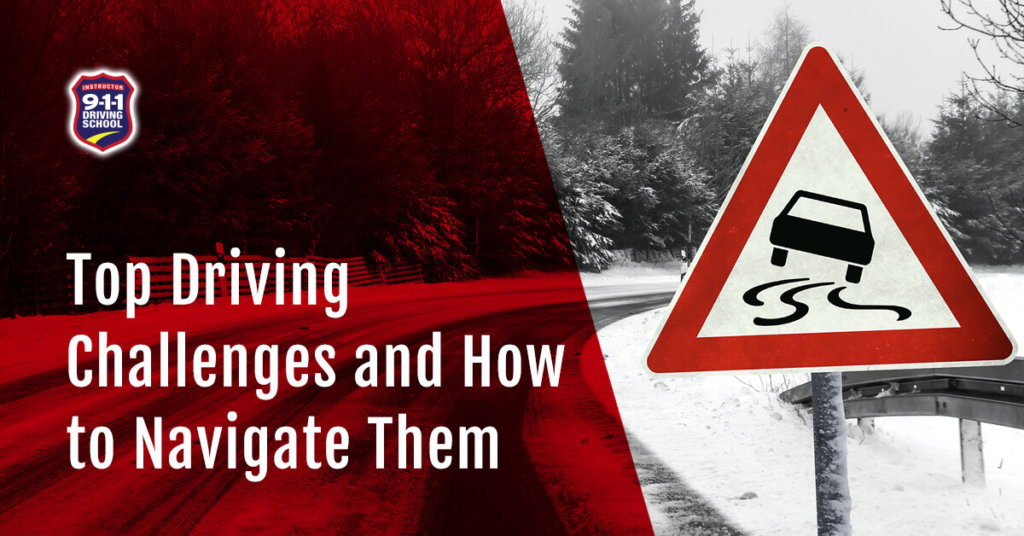Driving is a responsibility that comes with learning skills before licensing. No matter how much an adult or teen driving school tries to prepare student drivers, there are still some situations that are challenging. Situations such as driving in bad weather, through heavy traffic, around large trucks, and even dealing with aggressive drivers can seem overwhelming and intense in the moment. Here are some basic reminders to help you sharpen your skills when it comes to these common driving challenges.
Bad Weather
Depending on where you live, there are different versions of “bad weather”. For some it is snowy blizzards, others deal with black ice, heavy rains, fog, and dust storms. No matter where you live and what weather you deal with, driving in bad weather has some common advice.
- Reduce your speed. If you have limited visibility, it is important to slow down. If there is no visibility at all, pull off to the side of the road in a safe location. In cases like blizzards, it is important to stay on the main road so help can find you. In a situation like a dust storm, it will pass, and you can wait it out.
- Limit distractions. The worst time to be distracted is in a tense driving situation. Turn the radio down, ask passengers to be quiet, always keep both hands on the wheel, and focus on the road.
- Keep an emergency kit in the car. Always keep water, snacks, a blanket, and an extra charger in your car. If you are stranded or must pull over, it is good to have supplies. Also keep some extra tools and a spare tire in your car.
Navigating Around Large Trucks
Large trucks have a bigger blind spot than any other sized car. Even with their extended mirrors, drivers struggle to cars that are driving alongside, behind, and in front of them. Be mindful of these limitations and respect their need for you to stay out of the way whenever possible. Also, be kind and let them merge into your lane if they are signaling to move over. Trying to race past or getting right in front of a truck is never a good idea and can end badly for you.
Heavy Traffic
Driving in heavy traffic is never pleasant. Driving in heavy traffic when you need to get over to an exit, there is construction, or you are in a hurry can make it worse. There are some basics to remember when navigating through heavy traffic.
- Use your blinker. It is very important that the other drivers on the road know what you are trying to do. If you need to move over, turn on your blinker and slowly move over when you can.
- Don’t wait. If you know that you need to exit soon, start making your way over while you have a little more time. Having a ½ mile stretch to merge over 4 lanes just isn’t convenient for anyone.
- Obey construction signs. No matter how impatient you become, you must always follow construction signs. Failing to follow these signs will come with higher priced tickets from police officers. Stay out of closed off areas, begin to merge when you see the signs, and reduce your speed.
- Slow Down. Everyone is delayed when traffic is heavy. While it is frustrating, it is important to slow down and remember that circumstances are beyond your control.
Aggressive Drivers
Everyone makes mistakes while driving. Try to keep a level head and not get too angry over someone making a mistake. Instead of slamming on the gas and racing around them, control your temper. They most likely did not do it on purpose and getting angry and hostile on the road is dangerous.
If you have made a mistake and another driver is acting aggressively toward you, do your best to ignore them. Do not engage in reckless behavior and put yourselves and everyone around you in danger. If they are being persistent and you are feeling threatened, call the police. Too often these situations will escalate, and it is important that you stay safe.
Focus on the Road
When all else fails, focus on the road and remember the basic skills you learned in your driving lessons. There are many situations you cannot plan for or perfectly remember what you are supposed to do. In those cases, the best thing you can do is be calm and trust your training and instincts.

